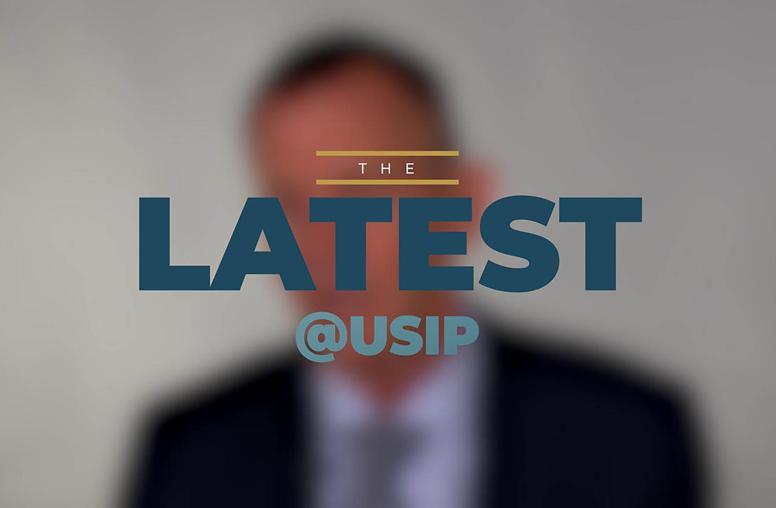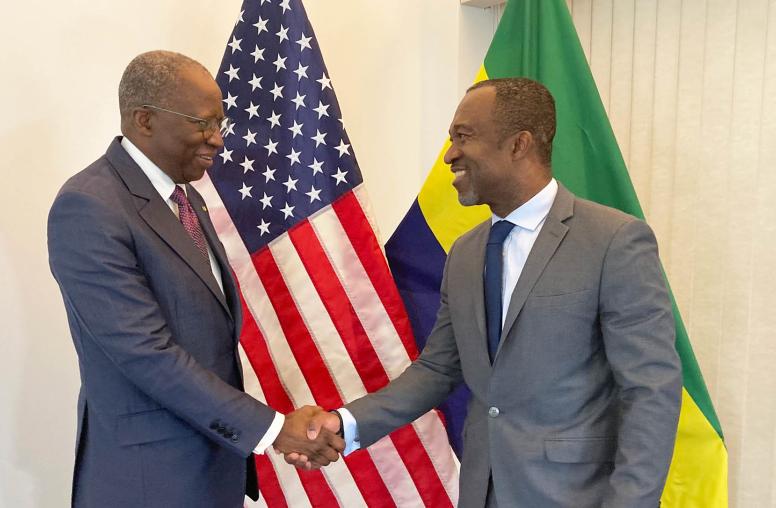A Governance Agenda for Preventing Violence in a Fragile World
Mobilizing the International Community to Strengthen State-Society Relations in Fragile States
Read the Event CoverageThe Islamic State’s resurgence in parts of Iraq and Syria and the sharp increase in terrorism in the Sahel serve as stark reminders that the underlying conditions that foment extremist violence remain firmly in place. In its final report to Congress, the USIP-convened Task Force on Extremism in Fragile States concluded that the United States can no longer rely solely on counter-terrorism to stave off the threat of violent extremism. Rather, to get ahead of the challenge, the U.S. must focus on eradicating terrorism’s root causes by encouraging good governance and political reforms in fragile states.
As more research reveals the linkages between poor governance, instability, and violence, the international policy community must develop a shared understanding of how support for responsive and responsible governance in fragile states can prevent violent extremism.
On January 7, USIP, the National Democratic Institute, and the George W. Bush Institute co-hosted a timely discussion on the way forward following the adoption of the Global Fragility Act and donor support for political transitions out of fragility. This event brought together thought leaders and practitioners—including USAID Administrator Mark Green and former Secretary of State Madeleine Albright—from across the peacebuilding, development, security, and democracy and governance communities. Together, they explored the unique factors that democracy and governance strategies face in fragile states, as well as how various disciplines can collaborate on donor strategies that build state accountability and effectiveness alongside citizen engagement and inclusion.
Continue the conversation on Twitter with #PoliticsofFragility.
Speakers
9:00am - 9:30am: Refreshments
9:30am - 9:35am: Remarks
- The Honorable Nancy Lindborg
President & CEO, U.S. Institute of Peace - Ambassador Derek Mitchell
President, National Democratic Institute - Mr. Lindsay Lloyd
Bradford M. Freeman Director of the Human Freedom Initiative, George W. Bush Institute
Keynote Address
- The Honorable Mark Green
Administrator, U.S. Agency for International Development
10:00am - 11:30am: Voices from the NextGen at the Intersection of Democracy and Peace
- Ms. Aluel Atem
Founder and Board Member, Crown the Woman-South Sudan - Mr. Jacob Bul Bior
Founding Member and Media Coordinator, #Anataban Campaign - Ms. Munira Hamisi
Director of Countering Violent Extremism, Mombasa County Government, Kenya - Mr. Samson Itodo
Executive Director, YIAGA Africa; Convener, Not Too Young to Run Movement - Dr. Emna Jeblaoui
President, International Institute of Human Development - Mr. Raj Kumar, moderator
President, Devex
11:30am - 12:00pm - Lunch Break
12:00pm - 1:00pm - Luncheon Conversation: Understanding the Strategic Context for Strengthening Governance in Fragile States
- Secretary Madeleine Albright
Chairman, National Democratic Institute; former U.S. Secretary of State - The Honorable Stephen J. Hadley
Chair of the Board of Directors, U.S. Institute of Peace; former U.S. National Security Advisor - The Honorable Nancy Lindborg
President & CEO, U.S. Institute of Peace - Ambassador Derek Mitchell
President, National Democratic Institute - Mr. Nick Schifrin, moderator
Foreign Affairs and Defense Correspondent, PBS NewsHour



